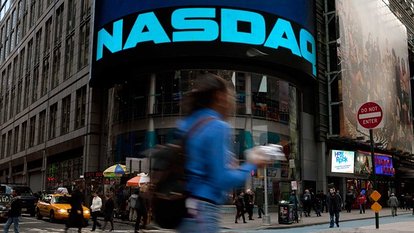(单词翻译:单击)
Earlier this month, the Cayman Islands Grand Court granted a petition on behalf of three funds managed by Hong Kong-based Maso Capital to have Chinese movie distributor Bona Film liquidated.
2月,开曼群岛大法院(Cayman Islands Grand Court)批准了一项申诉书,申诉者为香港Maso Capital管理的3家基金,它们要求将中国电影发行集团博纳影业(Bona Film)清盘。
Bona Film is one of a group of previously US-listed Chinese companies locked in bitter legal struggles in the Cayman Islands over the valuation at which they were taken private.
博纳影业以前曾在美国上市,但在开曼群岛因私有化时的估值陷入激烈的法律争议,类似的公司并非博纳一家。
The buyout of Bona in April last year led by its chairman Yu Yong with several of China’s most powerful investors, including Alibaba and Tencent, valued the company at about $880m. But Maso, which had a stake in the company through its funds, believes Bona should have been worth more than four times that, according to people familiar with the claims.
去年4月,博纳董事长于冬与中国最有实力的几家投资人(包括阿里巴巴(Alibaba)和腾讯(Tencent))发起的私有化,对该公司的估值约为8.80亿美元。但据熟悉这桩诉讼的人士称,通过旗下基金持股博纳的Maso认为,博纳的估值本应是这个数字的4倍以上。

Bona Film is not an isolated example. There are seven other companies facing Caymans lawsuits from hedge funds that believe they have been taken private at levels far below fair value. Funds such as Maso claim that these companies have been bought with the intention to relist them in China at a much higher price and are seeking to use the Cayman Island courts to compel the companies to pay more to former minority shareholders.
博纳影业并非个案。还有其他几家公司也在开曼遭遇对冲基金的起诉,这些基金认为,这些公司私有化时的估值远远低于公允价值。Maso等基金声称,这些公司私有化的目的是要在中国国内以更高价格重新上市,这些基金正试图利用开曼群岛法庭迫使这些公司向以前的少数股东支付更多。
These funds point to companies that have delisted in the US only to re-emerge on Chinese exchanges — including Focus Media, Giant Interactive and Perfect World — at valuations three to five times higher than the price at which they went private.
这些基金把矛头指向那些在美国退市、而后以3到5倍于私有化估值的股价在中国国内证交所重新上市的公司,包括分众传媒(Focus Media)、巨人网络(Giant Interactive)和完美世界(Perfect World)。
Maso and its lawyers are seeking a winding up of Bona because they believe it “has made a conscious decision to attempt to put assets out of the reach of the company such that any judgment obtained by petitioners would be worthless”, their petition states. ?
Maso及其律师的起诉书上写道,他们试图清算博纳的原因是,他们认为,博纳“有意做出决定,试图让该公司接触不到资产,这样起诉者获得的任何法庭裁决都将是无意义的”。
Bona is expected to appeal. “There are a lot of moving parts,” says one person involved in the case. The lawyer from Harneys representing Bona and a lawyer for Maso declined to comment.
预计博纳将提出上诉。据一位涉及此案的人士称:“变数很多,很复杂。”代表博纳的来自衡力斯(Harneys)的律师和代表Maso的一位律师拒绝置评。
Documents seen by the Financial Times from a Chinese investment group aiming to raise money from investors wishing to join Bona’s take-private were upbeat. They state that “after its shares have been relisted on the A share market, it is highly possible that the market value will increase significantly”, suggesting Bona was likely to be worth as much as six times that $880m.
英国《金融时报》从一家中国投资集团那里看到的文件则是一副乐观的措辞,该集团试图从希望参与博纳私有化的投资者那里筹资。文件声称,“博纳在中国A股市场重新上市后,市场估值极有可能大幅飙升”,这暗示,博纳的估值可能最高达到8.80亿美元的6倍。
But the proxy Bona filed with the SEC about its decision to go private was far more gloomy. It cited “the substantial uncertainty in the nature of the company’s business and rising costs and increasing competition [as well as] a slowdown of the overall economy and the depreciation of the renminbi [as contributing to] a significant negative effect on the valuation of the company”. By going private, “management can improve results without the pressures exerted by the public market”, the document added.
然而,博纳向美国证交会(SEC)提交的有关其私有化决定的文件要悲观的多。这份文件指出“该公司业务具有不确定性巨大的特点、成本上升和竞争加剧(以及)总体经济放缓和人民币贬值(会)对该公司估值产生巨大负面效应”。文件补充称,通过私有化,“管理层可以在免受公开市场施加压力的情况下改善业绩”。
Take-privates are a big market. There were 21 de-listings of Chinese companies in the US with a total deal value of $27bn in 2015, and another 16 worth $6.4bn in 2016, according to Dealogic. Such cases have done little to give reassurance about corporate governance — and the noise around existing disputes is set to intensify in coming months.
私有化是一个巨大的市场。根据Dealogic的数据,2015年,共有21家中国公司从美国退市,总规模达270亿美元;2016年又有16家公司退市,规模为64亿美元。这些案例无助于让人们对公司治理放心,同时,围绕现有纠纷的争议预计将在未来几个月升温。
The list of deals facing challenges in the Caymans — where Chinese companies have preferred to be incorporated because the law there allows controlling shareholders to vote on delisting proposals — includes Qihoo 360 Technology, E-Commerce China, E-House, Homeinns Hotel and Shanda Games. ?
在开曼群岛遭遇诉讼的交易名单包括奇虎360科技(Qihoo 360 Technology)、当当(E-Commerce China)、易居(E-House)、如家(Homeinns Hotel)和盛大游戏(Shanda Games)。中国公司青睐在开曼群岛注册公司,因为该地的法律允许控股股东就退市提议投票。
Internet security firm Qihoo 360, for example, was taken private at a valuation of about $9.3bn. Marketing materials from the fundraising “for the privatisation of Qihoo 360 and return of A shares” seen by the FT state that the return to investors assuming an exit in 2019 “may be as high as 5 [times]” and contain ambitious estimates of future net income and other performance metrics going out to 2019. Minority shareholders, though, say that conversations with Qihoo 360 and its advisers before privatisation suggested that the company’s prospects were not nearly that bright. A spokesperson for Qihoo 360 declined to respond to several email queries.
例如,互联网安全公司奇虎360私有化估值大约为93亿美元。英国《金融时报》看到的“为奇虎360私有化和回归A股”融资的营销资料称,假设2019年退市,投资者回报率“可能最高达5倍”,而且对截至2019年的未来净利润和其他业绩指标给出了极为乐观的估计。然而少数股东表示,在私有化之前与奇虎360及其顾问的谈话传递出来的信息是,该公司的前景远非那么光明。奇虎360的发言人拒绝就多次电邮问询做出回应。
One reason that virtually any company listing in China immediately soars is that money is being forced to stay home, and there are few attractive investment alternatives. But Chinese companies need to have a consistent message for investors no matter where they are.
几乎所有在中国上市的公司的估值都会立即飙升,其中一个原因是资金被迫留在国内,几乎没有其他颇具吸引力的投资选择。但不管身在何处,中国公司都需要向投资者传达一致的信息。


